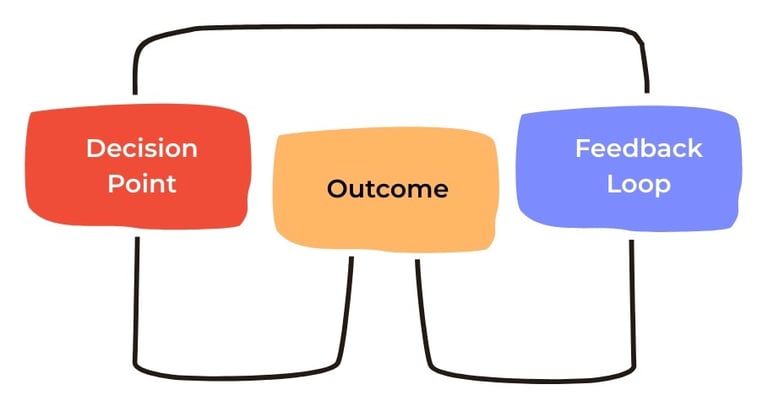From Classroom to Career: How Decision Simulations Build Transferable Skills
Discover how simulations prepare students for real-world decision-making under uncertainty, building skills employers value.
NYSKOL LABS' INSIGHTS
Nyskol Labs
8/13/20251 min read


The Gap Between Classroom and Career
In the job market, knowledge alone isn’t enough. The best graduates don’t just recall concepts—they apply them with confidence when the stakes are high and the data is incomplete.
Yet too often, the classroom still rewards knowing the right answer instead of making the right decision in real conditions. That’s a gap employers feel—and one that decision simulations are uniquely designed to close.
At Nyskol Labs, our simulations bridge this gap by replicating the complexity, ambiguity, and pressure of real-world decision-making. The result? Graduates who don’t just pass tests, but perform when it matters.
Simulating Real Complexity
In the workplace, challenges rarely arrive with clear instructions or perfect data. Markets shift. Clients change requirements. Teams work across time zones. Constraints are constant.
Nyskol’s decision simulations recreate these realities:
Multiple variables that change dynamically
Competing priorities that force trade-offs
Limited time and incomplete data that require judgment calls
Students are placed in realistic, evolving scenarios—where every choice has consequences. This is where theory meets practice.
Building Decision Agility
Decision-making under uncertainty is a skill. Like any skill, it improves with deliberate practice and feedback.
In our simulations, learners move through a clear cycle:
Decision Point → Outcome → Feedback Loop
Decision Point: Learners weigh options under pressure
Outcome: Immediate, realistic consequences unfold
Feedback Loop: They analyze what worked, what didn’t, and why
This cycle builds decision agility—the ability to adapt thinking, adjust strategies, and act confidently despite ambiguity.
Why Employers Value This Skillset
Across industries, employers consistently rank judgment, adaptability, and problem-solving as top priorities. These aren’t abstract “soft skills”—they’re hard-to-teach capabilities forged in real decision-making environments.
Graduates who’ve trained in Nyskol simulations bring:
Confidence in ambiguous situations
The ability to balance competing demands
Faster, more informed decision-making
A habit of reflective improvement
From engineering to consulting, healthcare to policy—these skills transfer seamlessly.
✅ Ready to See It in Action?
Decision simulations aren’t just an academic exercise. They’re a bridge from learning to leadership.
📥 Preview a simulation → [link]
See how we prepare students for the messy, complex, opportunity-rich world beyond graduation.
